
Freshfel Europe Headlines – Edition 3, 2022
Freshfel Europe’s Headlines publication provides an overview of the Association’s most recent activities.
For more information about Freshfel Europe’s activities please contact the Freshfel Europe Secretariat.

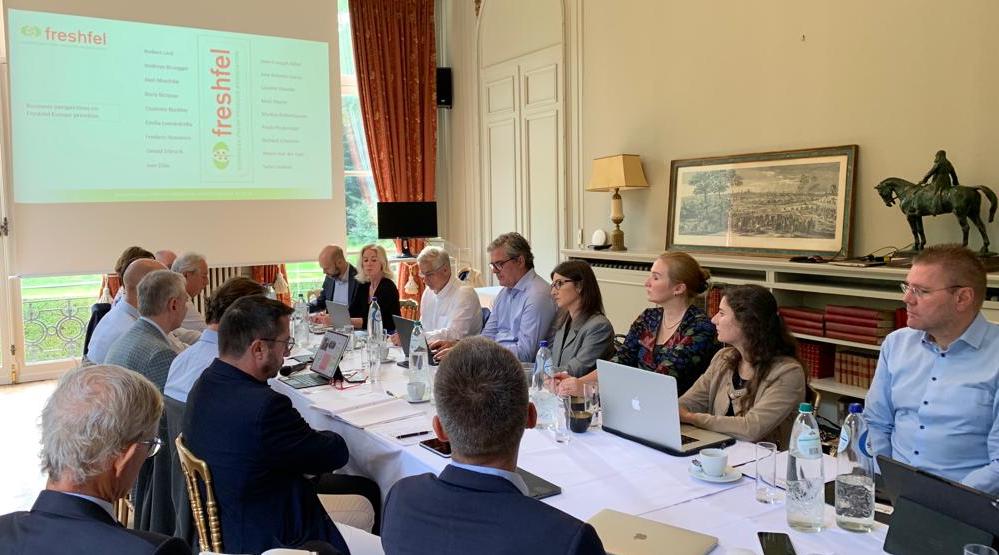
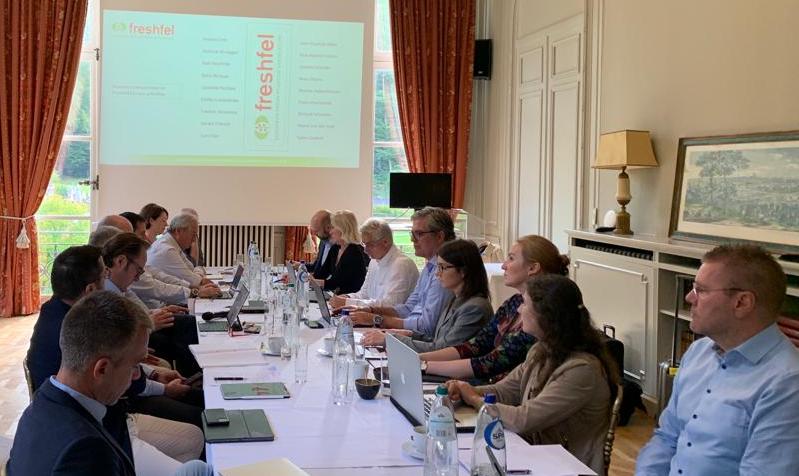
Freshfel Europe Board sets priorities for fresh produce
Under disruptive times, the Freshfel Europe Board met in Brussels in mid-September to set priorities for the association for the next two years. The sector over the past year has been confronted with a ‘polycrisis’ leading to adjustments to cope with on-going consequences of the Russian embargo, Brexit, the impact of (post) COVID pandemic on the supply chain, the war in Ukraine and rising prices of production inputs, energy, and logistics, as well as the role and positioning of fruit and vegetables in the EU’s sustainability agenda, including within the European Green Deal, the Farm to Fork Strategy and the climate emergency.
In light of the discussion of the state of play of the sector and the EU policy priorities, the Board fixed the priorities of Freshfel Europe for the next two years around 5 axes:
- Production tools under sustainable practices: Under the European Green Deal and Farm to Fork Strategy, to secure a toolkit and workable solutions for production while positioning fresh produce as part of the solutions to these strategies.
- An essential and competitive sector: Under disrupted productive and trade environments to boost competitiveness by getting the right attention on fruit and vegetables in all policies.
- Consumption of healthy and nutritious fresh produce: Under the already insufficient consumption level and further decline expected due to the economic crisis, take the necessary promotion steps to stimulate consumption.
- Boosting the reputation of the sector: Considering the unique environmental and health assets of the sector and its products, build a stronger image and rectify misperceptions about fresh produce to increase the visibility of its assets.
- Policy coherence: Be more vocal on regulatory challenges and secure the correct attention from fresh produce in all policies to be implemented in a timely, coherent and efficient manner.
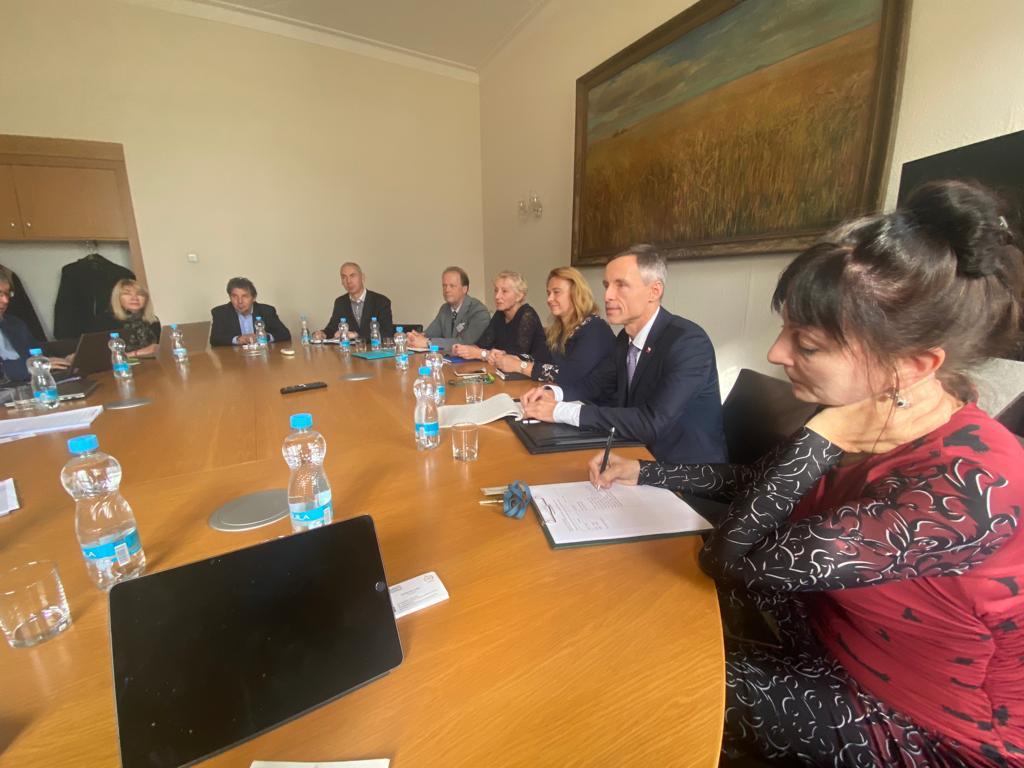
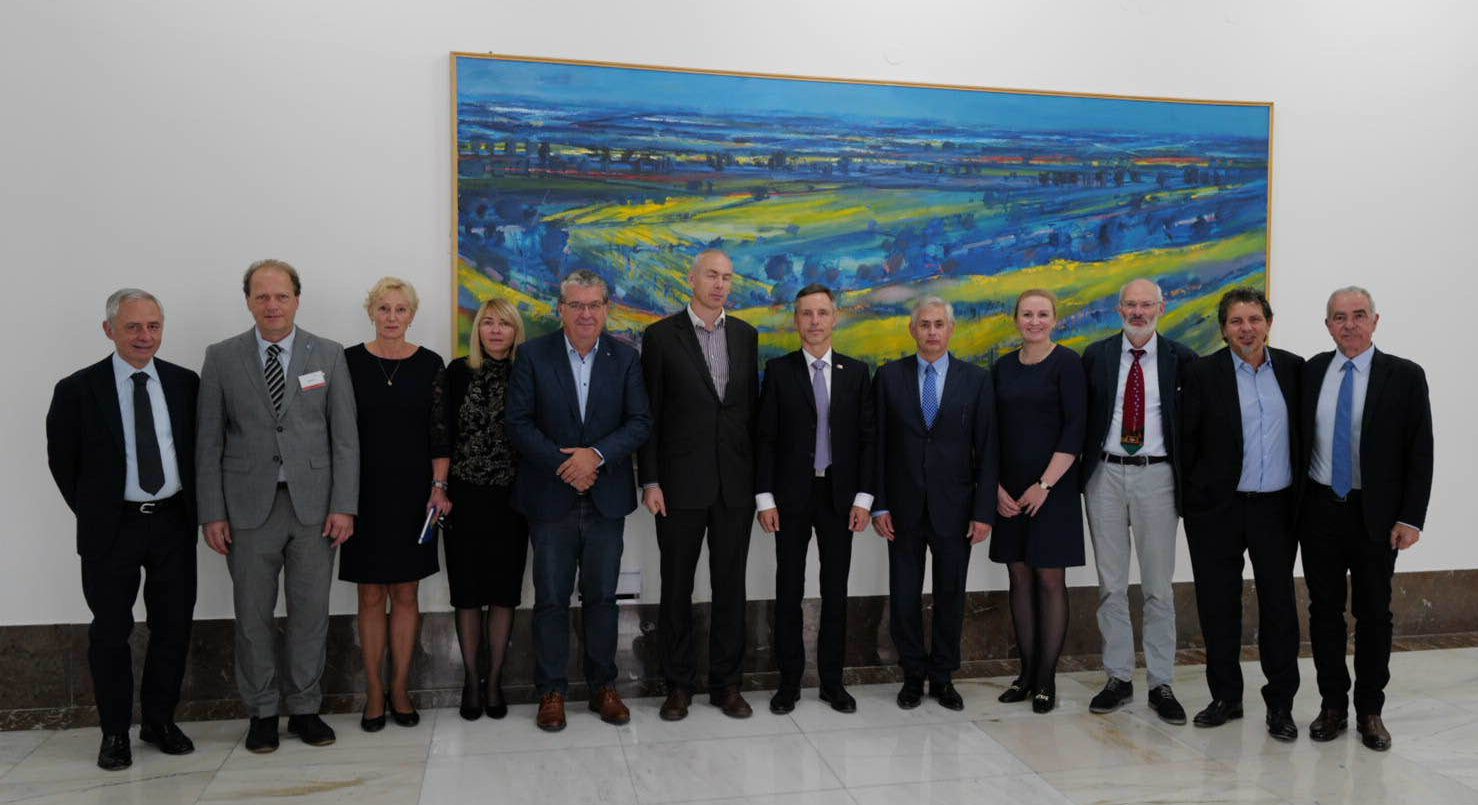
Freshfel Europe meets with Czech Presidency to address sector competitiveness
In the context of the Czech Republic currently holding the rotating presidency of the EU, a delegation from Freshfel Europe led by its President Salvo Laudani and its General Delegate Philippe Binard, met in Prague at the end of September with the representatives of the Czech Presidency of the EU dealing with agriculture. The competitiveness of the sector was at the center of the discussions covering various topics. This ranged from the impact of rising costs (energy, production inputs), the consequences of workers shortage (seasonal workers, truck drivers), climate change effects on production, disruptive elements linked to the revision of the sustainable use regulation and the endangered accessibility of plant protection products under the reduction target of the Farm to Fork Strategy, the need of a good balance between IPM and organic production according to market expectations, and under disruptive times matters relating to market access and global logistic challenges. Consumption trends, still well below the minimum 400g recommendation of WHO, were also discussed in depth as further pressure is already noted in consumers behaviours, deeply impacted by inflation and sky rocketing energy bills.
The delegation also highlighted that fresh produce sector must be deemed ‘essential’ as part of the solutions to the various EU ambitions, such as the European Green Deal, the Farm to Fork Strategy, the EU Beating Cancer Plan and FIT for 55 Package. In this context it is therefore crucial that the environmental, social and economic sustainability of fresh produce is well protected so that the sector can fully contribute to achieve these goals.
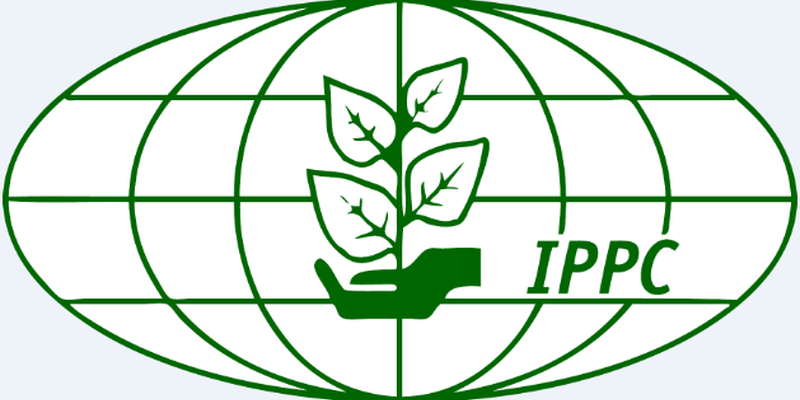
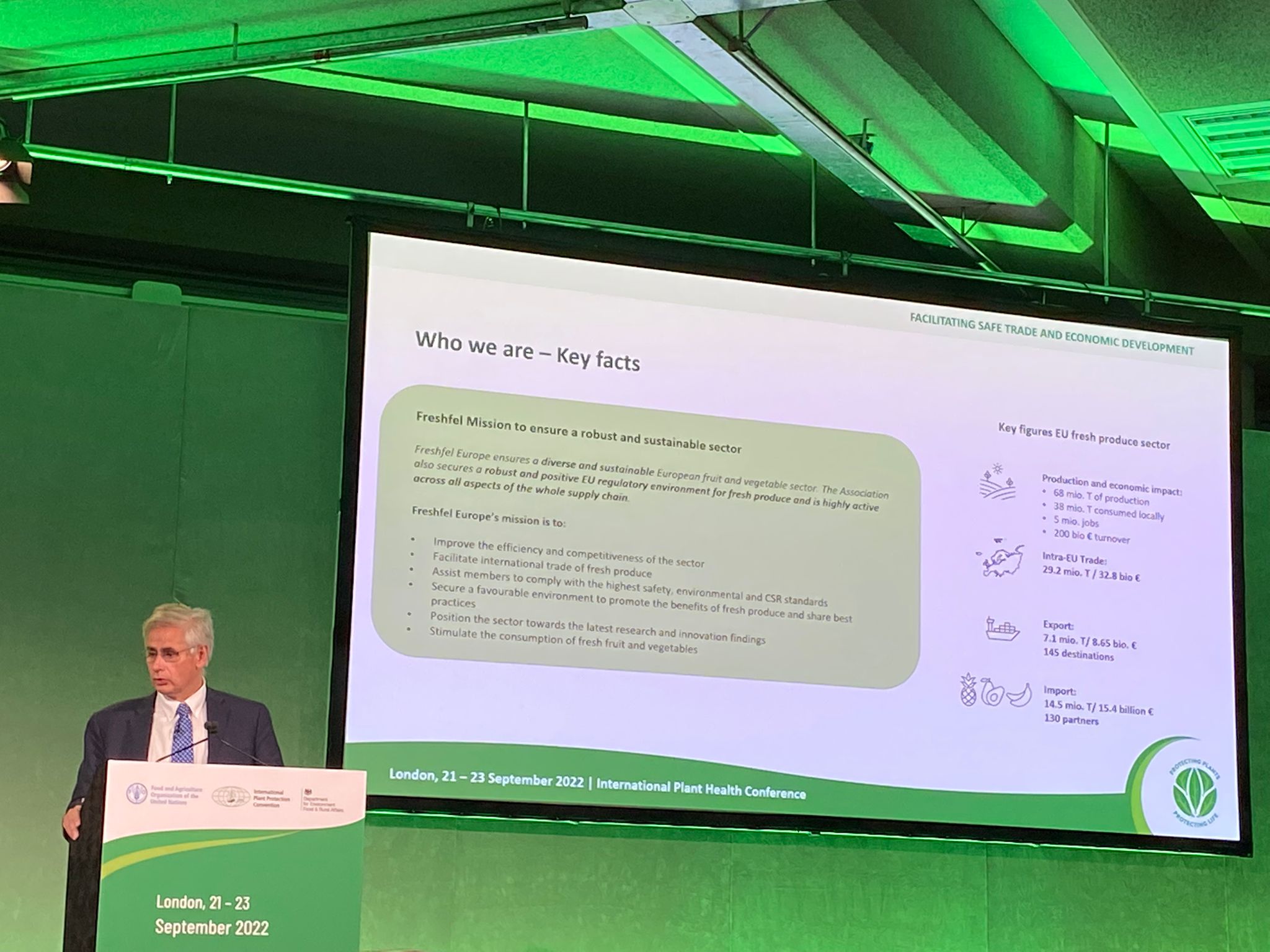
IPPC plant health summit in London: key Freshfel Europe messages
Freshfel Europe General Delegate Philippe Binard took part in the IPPC International Summit at the end of September in London. This was an opportunity to remind the importance of trading fresh produce with the necessary precautions to prevent the propagation of pests and diseases not known to occur in the destination countries. Freshfel Europe underlined growing awareness within the production and trade about the responsibility of operators for safe trade. Plant health rules need to be part of a coherent policy environment. Other aspects need to be closely connected and considered such as biodiversity, the toolkit for adequate protection of orchards in GAP and IPM, innovation of products to be more resistant to some pests or diseases, and other research that can be conducted for even better plant protection.
The fresh produce sector is committed to securing safe trade and complying with the necessary rules on market access. However, it should be lamented that SPS rules, including regarding plant health are often used as a protectionist instrument. To secure the opening of new markets for EU exporters, the negotiations could take years without even having a guarantee that it would lead to the opening of the market within reasonable conditions and costs. The process is costly, complex, and time consuming by both the public and private sector. Freshfel Europe therefore reminded the important role of the IPPC to harmonize mitigation measures for particular pests, securing that the setting of standards is scientifically driven and that a risk-based approach is kept when plant health negotiations take place. Freshfel Europe finally emphasized the role of digitalization. Electronic phyto certificates could enhance and facilitate custom procedures and minimize risks of mistakes in the documents and enhance transparency with a better reporting of non-compliance.
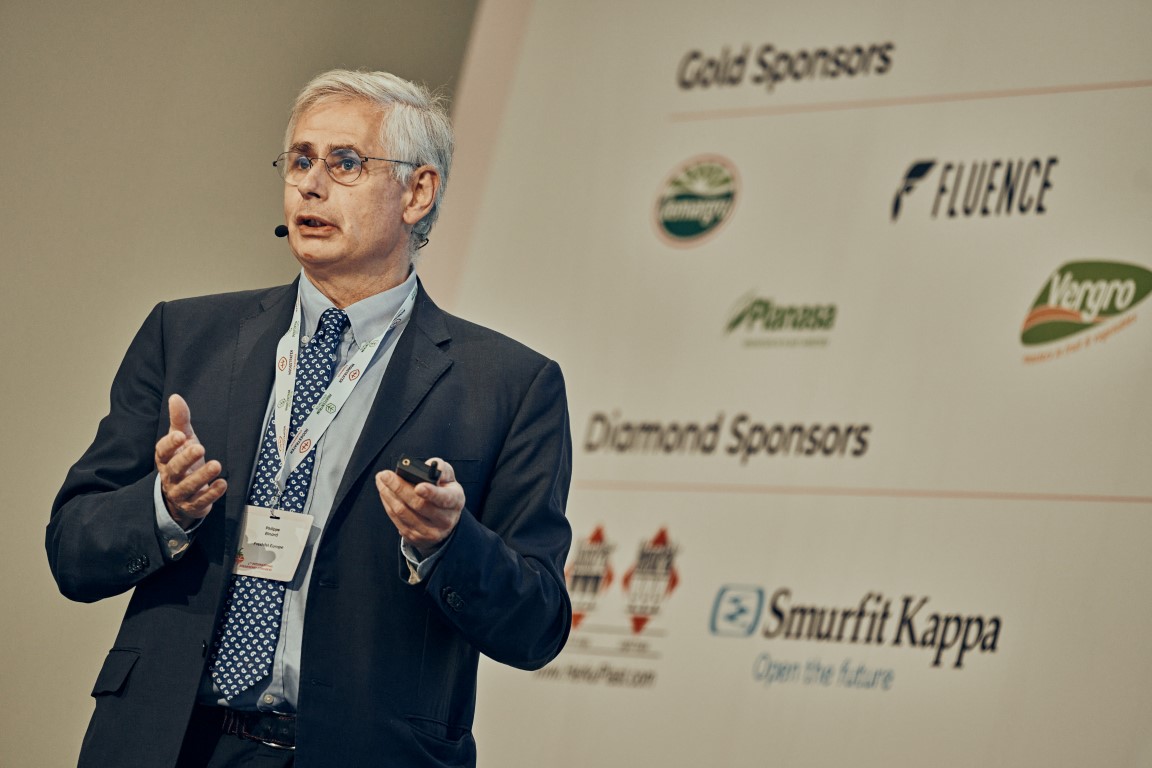
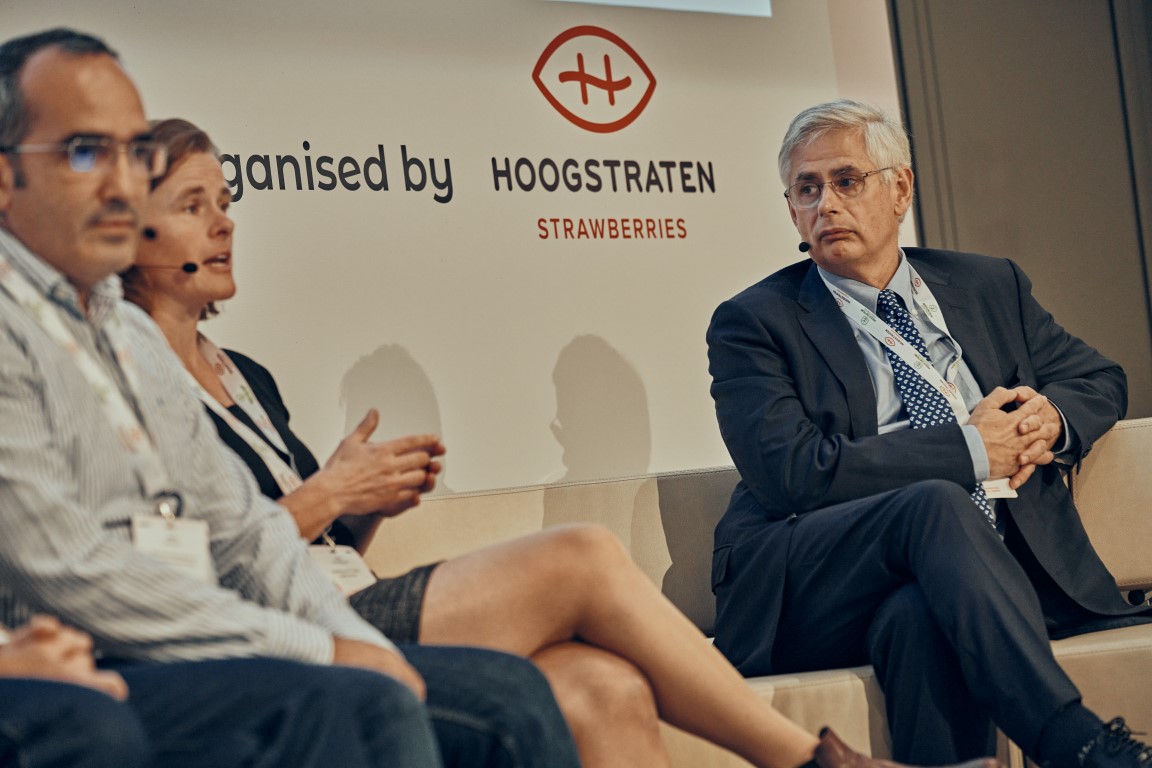
International Strawberry Congress in Antwerp
Organized by Hoogstraten in Antwerp, the 4th International Strawberry Congress was an opportunity for the global strawberry sector to meet and exchange on the leadership of the strawberry sector in a digital and sustainable future. Besides networking, the conference facilitated knowledge exchange on the latest research and innovation, evolving production techniques, review of new varieties and the latest production, trade and consumption patterns. On this occasion Freshfel Europe General Delegate Philippe Binard presented the latest business trends for strawberries. Within the buoyant berry segment, strawberries remain on the lead with close to 9 Mio T of production, out of which 1 Mio T are grown in the EU. Trade is steady at well over 400.000T. Organic sales have grown by 75% in the last decade but remain limited at 25.000 T . The strawberry business is worth €2 billion in the EU.
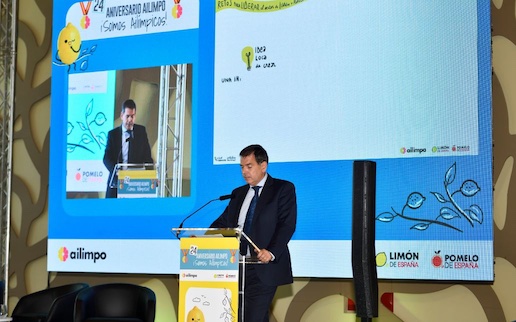
Freshfel Europe joins the XXIV Assemble of Ailimpo in Murcia
At the end of September, Ailimpo celebrated in Murcia its XXIV anniversary. The meeting was the opportunity to review the latest achievements of the Spanish lemon and grapefruit sector to adapt to new sustainability requirements under the Farm to Fork Strategy but also the initiative to stimulate the consumption of lemons and grapefruit under the EU promotion programme. Freshfel Europe General Delegate Philippe Binard took part to the round tables covering these different issues and highlighted the active role of Ailimpo in Brussels though Director Jose Antonio Garcia Fernandez, member of the Freshfel Europe Board and former Chairman of the Civil Dialogue Group on Fruit and Vegetables.
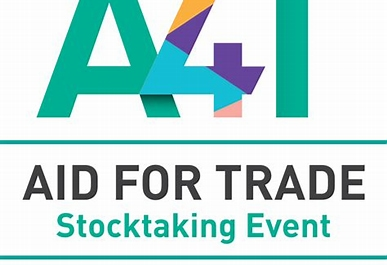
Geneva WTO and World Bank conference Aid for Trade
Freshfel Europe General Delegate Philippe Binard took part in the session ‘Connecting for safe trade’ at the WTO and World Bank Annual Trade Conference in Geneva at the end of July. The session was an opportunity to remind the various hurdles that EU fresh produce traders are still facing globally. The lack of standards and procedure for market access, the timely and costly procedure for market access, often the lack of transparency or science-based measures are leading to many lost opportunities for fresh produce trade. A number of challenges need to be overcome such as balancing different priorities between orchard protection (pest proliferation) and new societal expectations of less pesticides, but also how to reconcile biodiversity/sustainability and with chemical treatments. On market access, the ‘closed system’ operated by many countries has led to excessive measures, costly procedures and timely processes, and delays in opening markets often leading to irrational conditions in many protocols. More IPPC standards on mitigation measures could help facilitate safe trade.

First International Citrus Forum in Alicante
One thousand participants attended the first International Citrus Forum taking place in Alicante at the end of June. The event covered a wide range of topics ranging from new varieties, agriculture practices and post-harvest technologies, pests and plant disease, genetics and nutritional benefits. Freshfel Europe General Delegate Philippe Binard participated in the session on production and trade, looking at the positioning of citrus suppliers on the EU markets, tools for organizing production (producers organization and Interbranch) and the joint activities that can be undertaken such as promotion to stimulate the consumption of citrus in the EU.

Freshfel Europe actively involved in EFSCM meetings
Freshfel Europe and ESSA have a joint membership to the European Commission’s Expert Group on the European Food Security Crisis Preparedness and Response Mechanism (EFSCM). In recent months Freshfel Europe has actively engaged in the activities of the expert group by attending and engaging in the following meetings:
Subgroup on ‘Improving the diversity of sources of supply’:
The Commission presented the objectives of the subgroup as well as a concept paper circulated ahead of the meeting that proposes to tackle supply diversification through three perspectives from the production, trade and use/consumption side. Following the discussion, stakeholders were invited to comment on the concept paper. Freshfel Europe and ESSA submitted its comments on the three perspectives.
Freshfel Europe and ESSA stressed that the war in Ukraine plays an important role in challenging the competitiveness of fresh fruit and vegetables production due to the rising cost of energy, production inputs as well as fertilizers, which could impact the total volume of production. However, climatic conditions could play a much more significant role on food security. In the last ten years an increasing number of climatic havocs have multiplied food losses in agricultural fields due to late prolonged frosts in spring, flooding, hail, drought, and heat waves. Moreover, agricultural fields are also exposed to emerging pests and diseases due to climate change. Meanwhile the Farm to Fork Strategy is moving towards an additional reduction of plant protection products (by 50%) to remedy those pests and diseases without having alternative tools available on the market. The two associations stressed that a holistic approach should be taken when developing new policy areas to address the challenges faced by the industry such as organics, food safety, plant-based diet, energy, plant health, trade, etc.
Subgroup on ‘Dashboard for the monitoring of food supply and food security’:
During the subgroup meeting the Commission presented the elements of the draft design for the dashboard and invited the participants to provide their feedback on the dashboard composition, particularly concerning its three pillars: the monitoring system, the alert system and qualitative assessment. Among comments submitted by the two associations it was stressed that perishable commodities require a higher frequency of data exchange, while long lasting commodities are less restricted in time. It is important for the Commission to define the frequency of data collection keeping in mind the properties of different commodities. It was also underlined that the fresh produce industry operates with tight margins, therefore it is difficult to get a full overview due to the following factors: wide diversity of products, various origins, sub-varieties, branding, etc. All these elements tell a different story. Therefore, a very careful assessment of data is needed.
3rd ad hoc meeting of the EFSCM:
The objective of the 3rd ad hoc meeting of the EFSCM was to discuss and provide inputs on the impact of energy prices on food security as well as consumer food prices increase and food security. DG AGRI Deputy Director General Michael Scannell chaired the meeting, affirming the unprecedented situation regarding the impact of surging energy costs on food security. The Chair referred to the Council’s emergency energy package and Member State responsibility to apply protected status to agri-food chain partners and ensuring priority access to energy and gas supplies. The Chair also noted the necessity to cope with the crisis by not developing new dependencies, such as on energy, food or fertilizers.
Freshfel Europe and ESSA stressed that the entire supply chain is affected by energy price hikes from producers to retailers. Producers especially face an unsustainable situation, with many incurring losses and potentially facing bankruptcy due to the high production costs while sales at retail level are already in decline. European producers are forced to take decisions which may even lead to non-harvesting because of costs associated with the storage of products. Energy costs have also effects on greenhouse production. The rising costs of fertilisers are underestimated at present. A lack of long-term fertilization is only visible after some years when the soil is showing lack of growth. Transport costs are also rising. European consumers might stop choosing imported produce because of its rising price due to increased transport costs. Freshfel Europe and ESSA also stressed that millions of consumers in the EU will be forced to choose to pay bills or buy better quality food. This will have a tremendous effect on the fresh produce businesses. Consumption will drastically decrease. Inflation has in fact affected the purchasing power of European customers. Decreasing consumption of fruit and vegetables has been further impacted by the misperception of fresh produce becoming unaffordable. The decreasing level of fruit and vegetable consumption clashes with the push towards a plant-based diet in Europe as per the Farm to Fork Strategy, where fresh produce should play a primary role.

Freshfel Europe response to European Commission proposal for a Regulation on the sustainable use of plant protection products
In June the European Commission published a consultation regarding its proposal for a Regulation on the sustainable use of plant protection products. The Sustainable Use of pesticides Directive (SUD) was adopted in 2009 with the aim of reducing the risk and impacts of the use of pesticides on human health and the environment. During the impact assessment the Commission identified a number of concerns with regard to the implementation of the SUD. This resulted in a new Commission proposal. In June the European Commission published a consultation regarding its proposal for a Regulation on the sustainable use of plant protection products.
Freshfel Europe submitted its comments stressing the new regulatory initiative is coming under a disruptive time for European fruit and vegetables production, which could endanger supply and food security due to multiple aspects. This includes: The war in Ukraine plays an important role in challenging the competitiveness of fresh fruit and vegetables production due to the rising cost of energy, production inputs as well as fertilizers and crop protection solutions, which could impact the total volume of production; climatic conditions could also play a much more significant role in food security. In the last ten years an increasing number of climatic havocs have been multiplying the food losses in the agricultural fields due to climatic incidents such as prolonged frost in spring, flooding, hails, drought, heat waves, etc., and agricultural fields and orchards are also exposed to emerging pests and diseases due to climate change. Freshfel Europe’s full response can be found on a public website here.

Freshfel Europe hosts webinar on ‘EU sustainability food label proposal’ for members
On the 5 July Freshfel Europe hosted a webinar in ‘EU sustainability food label proposal’ for its members. The purpose of the webinar was to discuss the European Commission’s proposal for a EU sustainability label for food as part of the proposal for a Sustainable Food Systems Framework under the Farm to Fork Strategy. A keynote presentation was made by DG Sante Alexander Rogge from Unit E.1 on the proposal, including policy options being discussed by the European Commission. The webinar also included two presentation by Freshfel Europe Director Sustainability and Health Nicola Pisano on the proposal in the perspective of the EU Code of Conduct on Responsible Business and Marketing Practices and the Association’s work in environmental footprint as part of the Freshfel Europe Environmental Footprint Initiative. The webinar was well attended by representatives from across the fresh produce supply chain.


UK voluntary fresh produce packaging actions informed by Freshfel Europe
In July Freshfel Europe Director Sustainability & Health Nicola Pisano joined UK fresh produce stakeholders at two the Waste and Resources Action Programme (WRAP) meetings to discuss voluntary fresh produce packaging actions. As of yet, the UK has not legislated the use and/or reduction of fresh produce packaging materials, such as is the case in the EU under the Single-Use Plastics Directive. WRAP is leading discussions on fresh fruit and vegetable products to consider selling loose in the UK (i.e. without packaging) while being sensitive to practical operational needs and consumption patterns. During the two meetings Ms Pisano provided learnings from the sector from different Member States, especially France, Belgium and Spain, on the ‘unpackaging’ of fresh produce, including opportunities and challenges incurred by operators. The functionality aspects of packaging in the fresh produce sector were also emphasized by Ms Pisano, where packaging for many fresh fruit and vegetables products is still essential for example to prevent microbiological contamination, ensure food quality and prevent food waste.

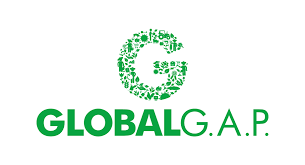
Global G.A.P looks towards Freshfel Europe’s work on PEF as part of upcoming sustainability strategy
As part of Global G.A.P’s extensive discussions and consultations with stakeholders on its upcoming sustainability strategy Freshfel Europe was invited to share information on Product Environmental Footprint (PEF) methodology and the Association’s work in this area. During two Global G.A.P workshops in September and October Freshfel Europe Director Sustainability and Health Nicola Pisano gave an introduction to PEF and an explanation of the continuing work of Freshfel Europe’s Environmental Footprint Initiative to create a shadow PEFCR (Product Environmental Footprint Category Rules) for fresh fruits and vegetables. On both occasions, an accompanying presentation was given by Roline Broekema from Wageningen University on the PEF methodology and work on PEF in the floriculture sector. All information about Freshfel Europe’s Environmental Footprint Initiative is available here.
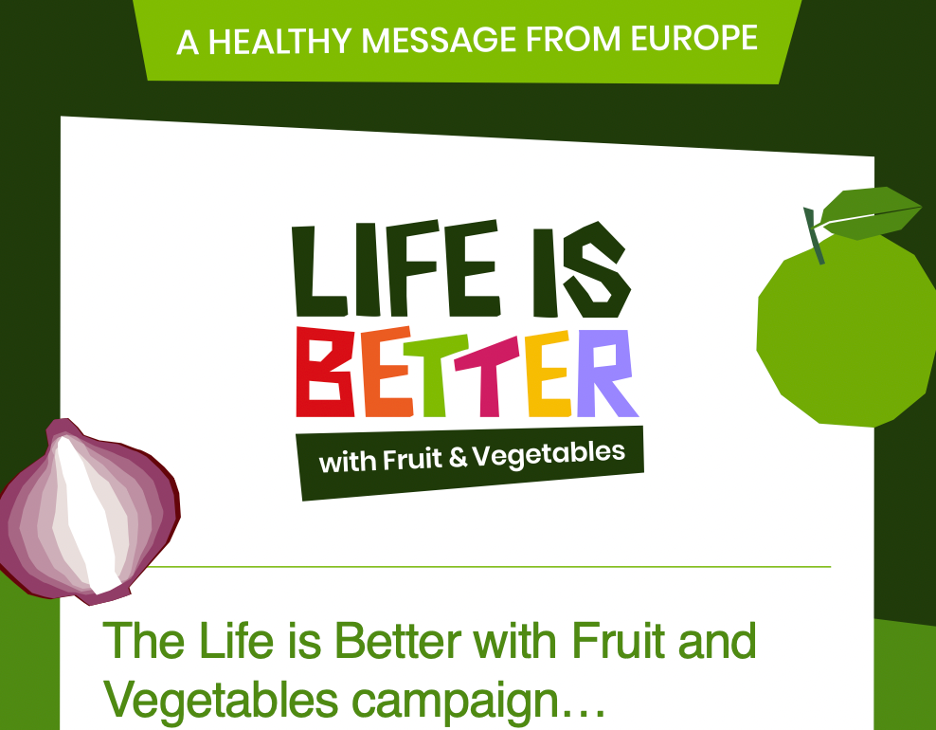
‘Life is Better with Fruit & Vegetables’ campaign continues to promote fruit & vegetables among millenials
Life is Better with Fruit and Vegetables is an EU-funded programme that targets Millennials and aims at increasing their level of knowledge regarding the nutritional benefits, versatility, sustainability, and practicality of fruit and vegetables. Young Europeans aged 25 to 35 represent a key demographics of consumers, as they are still shaping their purchasing and eating habits. The campaign, which was officially launched during a press conference on the occasion of Freshfel Europe´s Annual General Meeting on 18 May 2022, will run until February 2025 and will take place in France and Ireland, in addition to having a pan-European dimension. It will involve Interfel, AIB, Bord Bia, and Freshfel Europe.
As well as hosting the annual press conferences of the campaign, Freshfel Europe will distribute quarterly newsletters to its members to update them about the activities of the campaign. The first and second newsletter of the campaign focused on the launch of the project and the press conference respectively.
